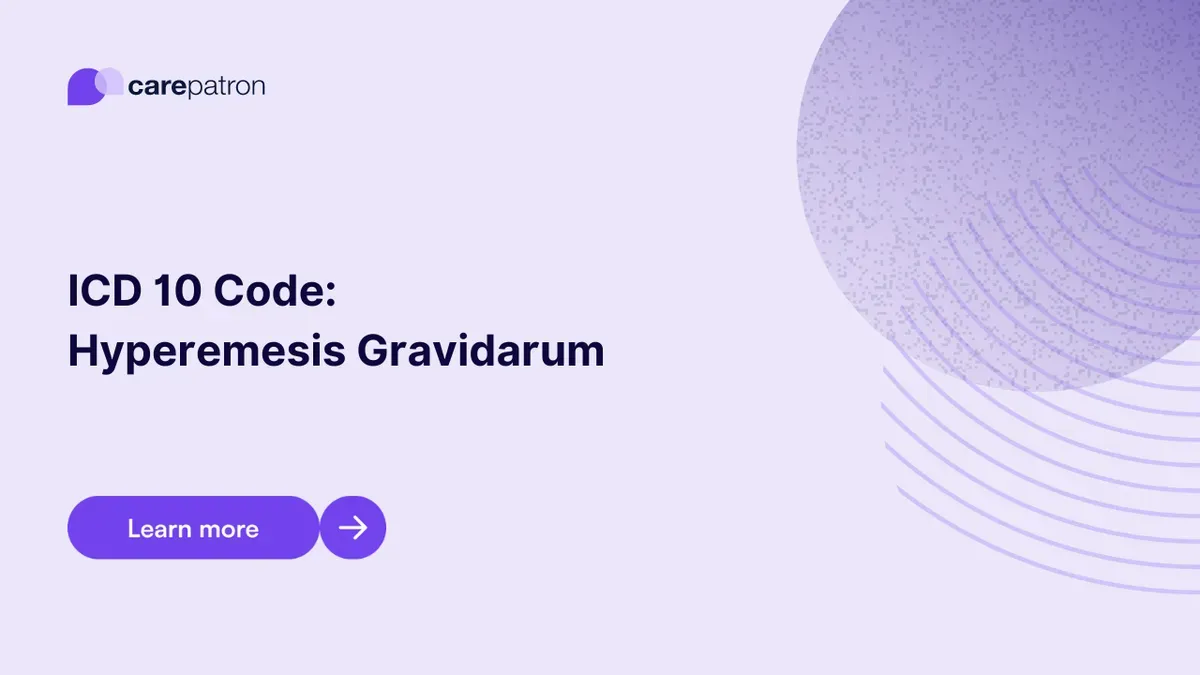
Hyperemesis Gravidarum ICD-10-CM Codes | 2023
Read this short guide to learn about Hyperemesis Gravidarum ICD codes you can use!
Use Code
Commonly asked questions
Even with current research efforts, it’s not known what indeed causes Hyperemesis Gravidarum. Currently, findings indicate increased hormone levels, specifically estrogen, and human chorionic gonadotropin, as the most likely reason.
Besides electrolyte deficiency, nutritional deficiency, and potential death, other complications include bleeding in the throat due to constant vomiting, low birth weight, and pre-term birth.
The best they can do is manage it. To reduce the impact of the problem’s symptoms, they should eat smaller meals, stay hydrated, avoid nauseating smells, and avoid their motion sickness triggers.
EHR and practice management software
Get started for free
*No credit card required
Free
$0/usd
Unlimited clients
Telehealth
1GB of storage
Client portal text
Automated billing and online payments
